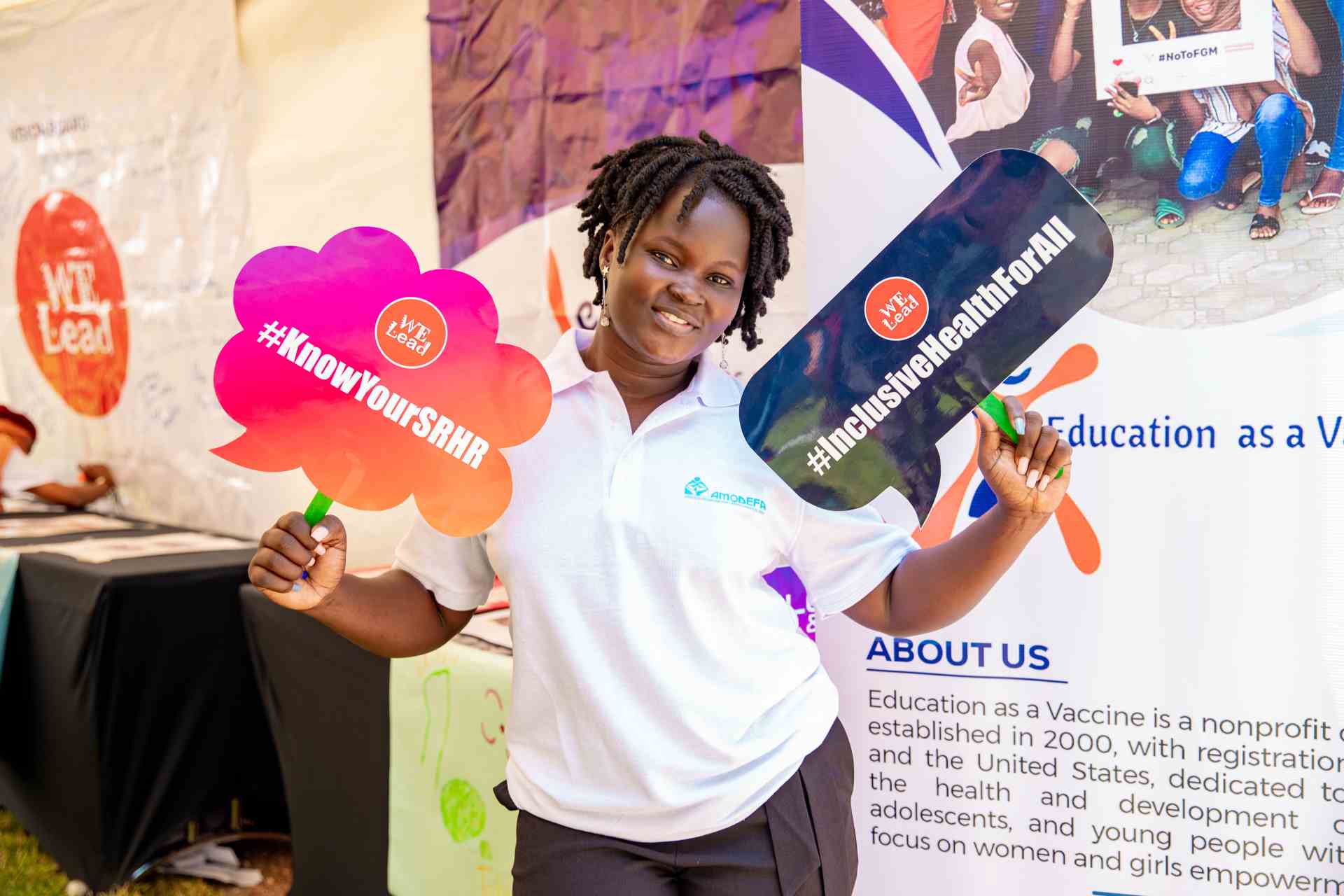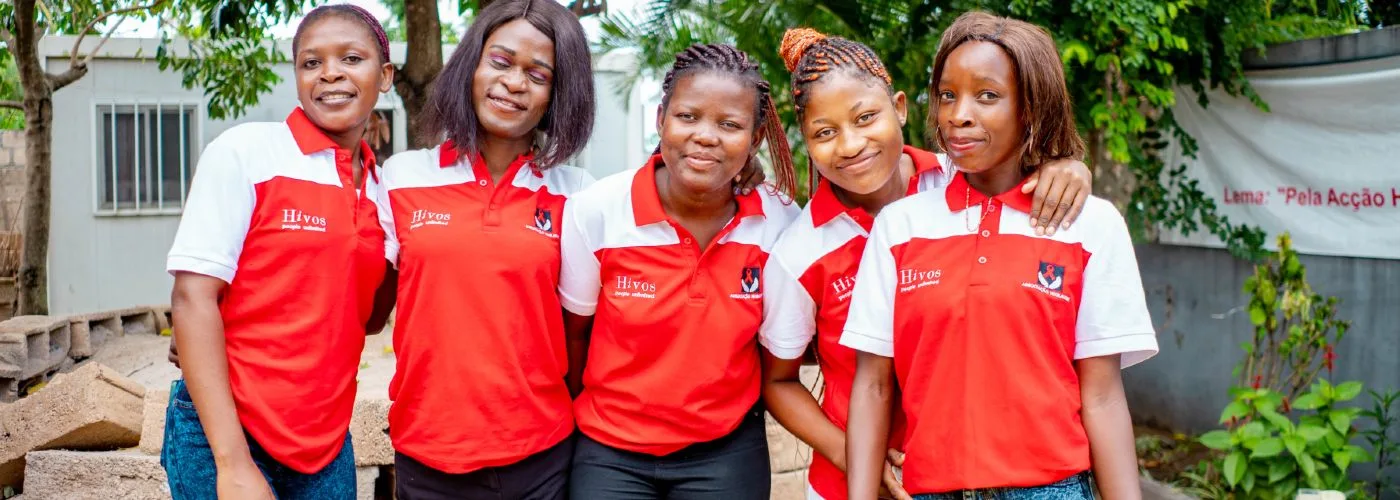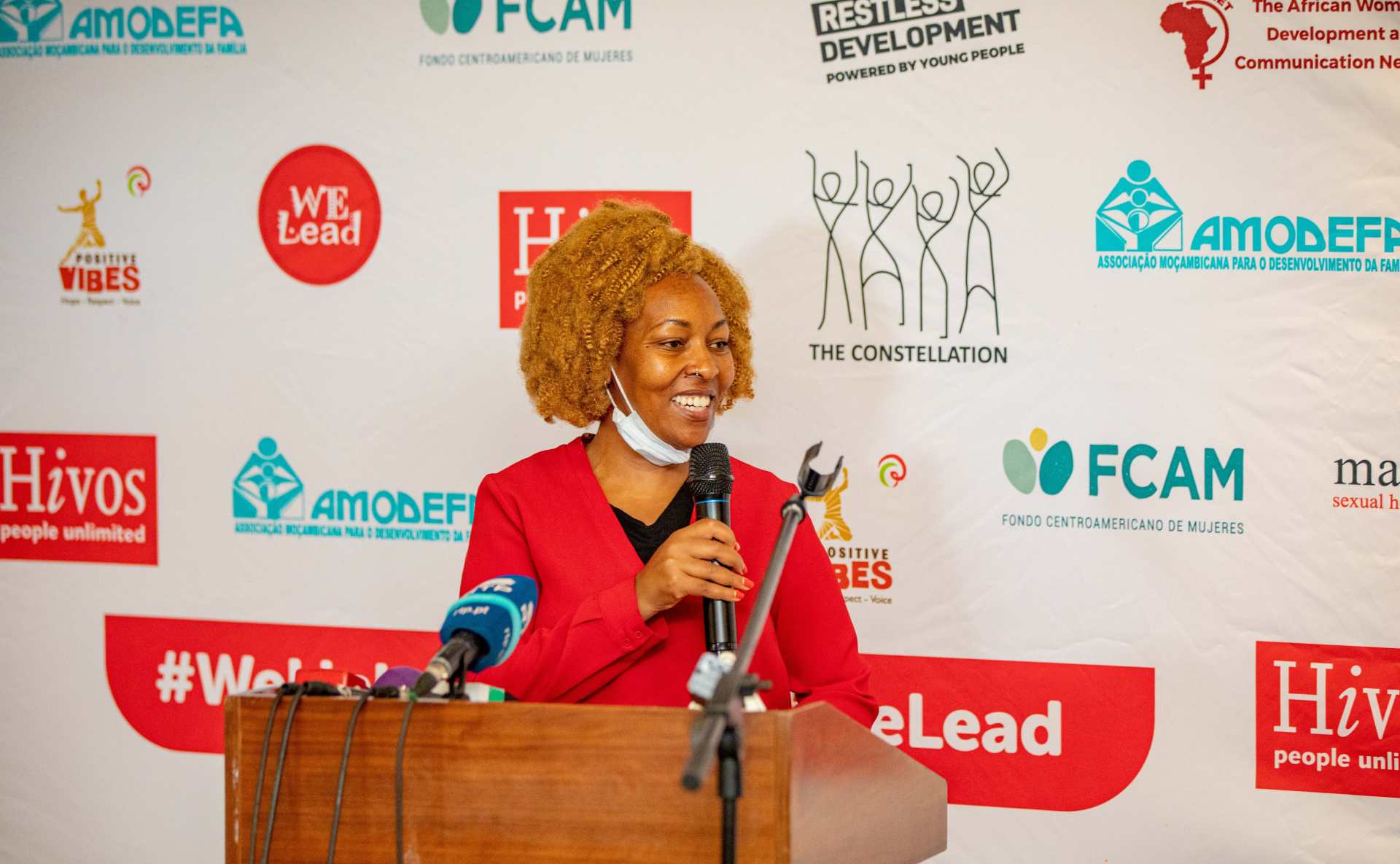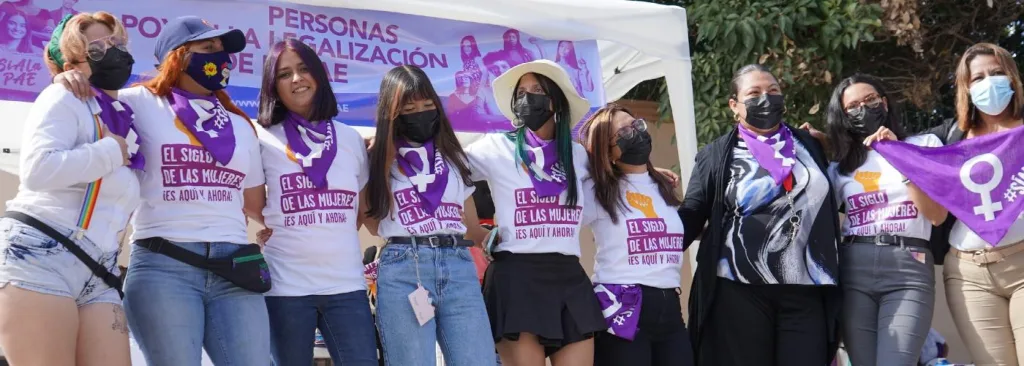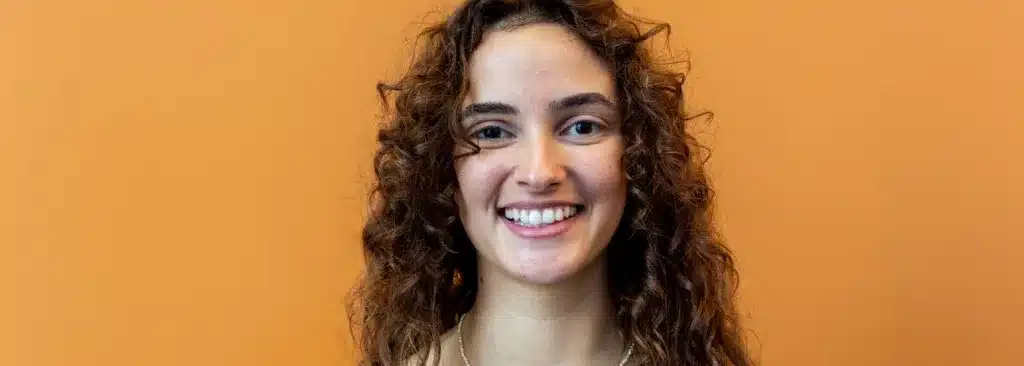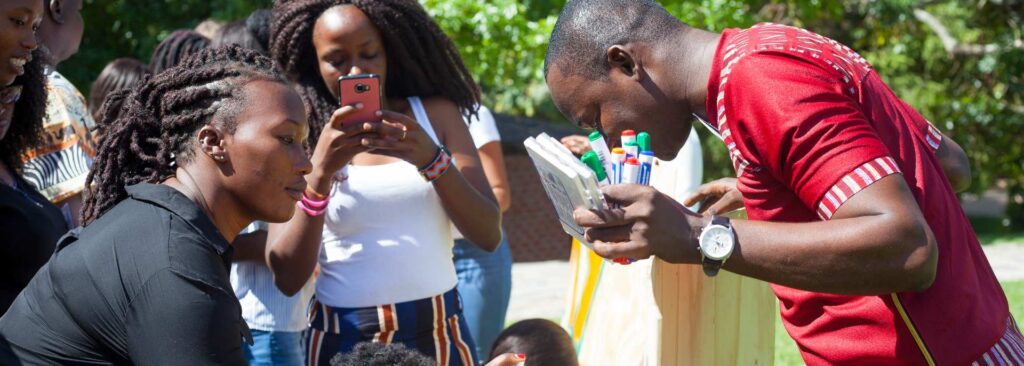This was the call as all roads led to the beautiful African city of Maputo last February. Young women and girls, passionate and dedicated, gathered from all over the globe to link and learn with each other about advocating for their sexual and reproductive health and rights (SRHR).
It was an intense, positive, and truly inspiring week-long event. Young people shared their country and regional experiences and lessons learned about innovative initiatives and approaches to SRHR. The goal was to boost collaboration, exchange, learning, and innovation among the different stakeholders within Hivos’ We Lead Program.
As we celebrate International Women’s Day 2024, our Global Program Manager, Nyambura Gathumbi, talked about her experience and the need to give young women and girls a chance to take the lead. “I feel so good to see courage on their faces. They honestly believe that fear has no place in their world, and they have a saying for it: ‘fear is good when it protects us and bad when it paralyzes us,’” she said.
What the community had to say
“From community visits to innovative solutions, every moment fostered growth and connection. Witnessing impactful projects firsthand and celebrating diverse cultures fueled my purpose to empower girls and young women! To greater strides!”
Malkia John, a young rights holder from Kenya.
“So refreshing to listen to sex-positive conversations, experiences in movement building, intergenerational dialogue, and passionate personal stories that keep them motivated and moving forward.”
Nyambura Gathumbi
Art is key
Innovation is a key feature of We Lead. The program is keen on finding, testing, and using innovative approaches. From how rightsholders and their organizations connect to enhance new synergies and SRH-R-related ideas, to how they deal with the digital divide seen in most of the We Lead countries.
So we encourage the use of creative arts for collective discussions, expression, and promoting SRHR initiatives amongst the youth. Each country where We Lead is implemented had a stand showcasing their work and projects, highlighting achievements, good practice, and several lessons they learned.
We use art as an accessible and inclusive strategy for our work, with methodologies such as the Theater of the Oppressed and collaborative design, among others. This allows us to reach our communities and society in attractive and interesting way.”
Valentina Vargas, Mujeres con Capacidad de Soñar a Colores
“In Guatemala, we continue our advocacy work at the local, national, regional, and international levels for the rights of women with disabilities. For example, this year we participated in two shadow reports to the CEDAW in the evaluation of Guatemala, and one of our colleagues spoke on behalf of Guatemala.”
The first Indigenous woman with disabilities to represent the country
Innovation and impact community SRHR strategies in Uganda
AWAC-Uganda conducts evidence-based advocacy engagements that inform briefings and reports for use in awareness and strategic engagements with duty bearers.
The organization was recognized and awarded at the Linking and Learning Festival for having the most innovative and effective community strategies used in promoting SRHR among the marginalized adolescent girls and young women served by the We Lead program in Uganda.
The passing of the Anti-Homosexuality Act in Uganda halted SRHR services in many health facilities for many organizations. Using a multi-faceted and responsive youth-friendly approach, including one-stop centers, community engagement, and a toll-free hotline, AWAC has directly reached hundreds of young people every month.
“We try as much as possible to work hand-in-hand with government structures so that they appreciate the work we do. Because in such engagements, they tend to appreciate the unique challenges that key populations go through and they eventually become allies and resource points for rights holders.”
Ugandan We Lead Community of Action
“Behind the Mask” in Jordan
Our team from the MENA region shared an innovative “Behind the Mask” strategy to empower women regarding their SRHR. The strategy conducts awareness education sessions “behind the mask,” where participants wear masks that give them confidentiality and comfort. This approach can create a safe space that encourages frank discussions on sensitive topics, especially concerning sexual and reproductive health.
Particularly when discussing issues of sexuality, participants wear masks to allow themselves to speak freely and anonymously about sensitive issues without fear of judgment or criticism.
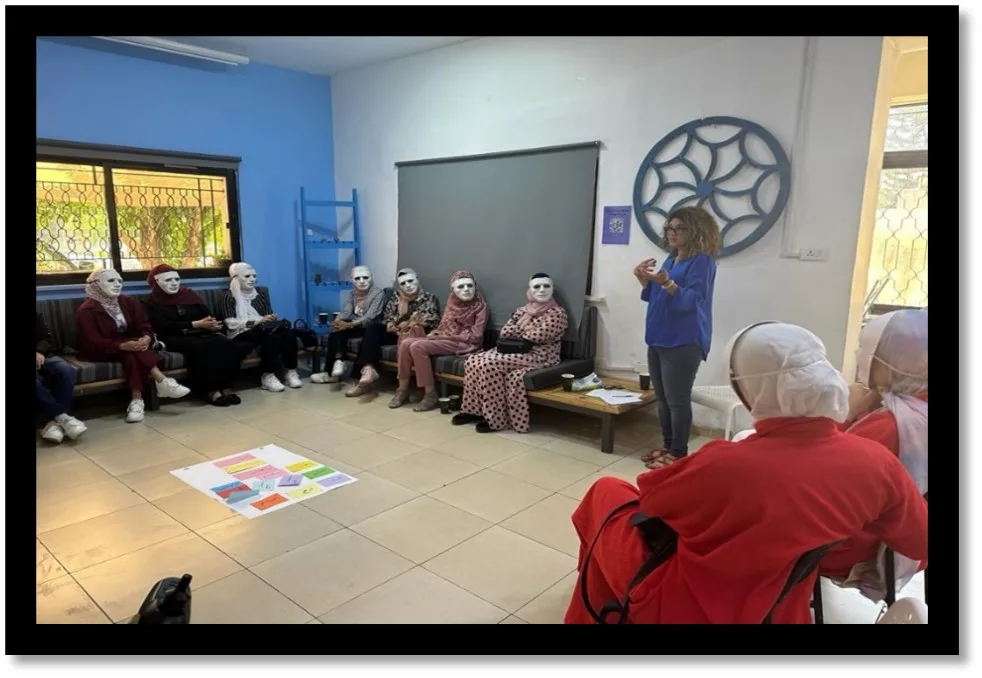
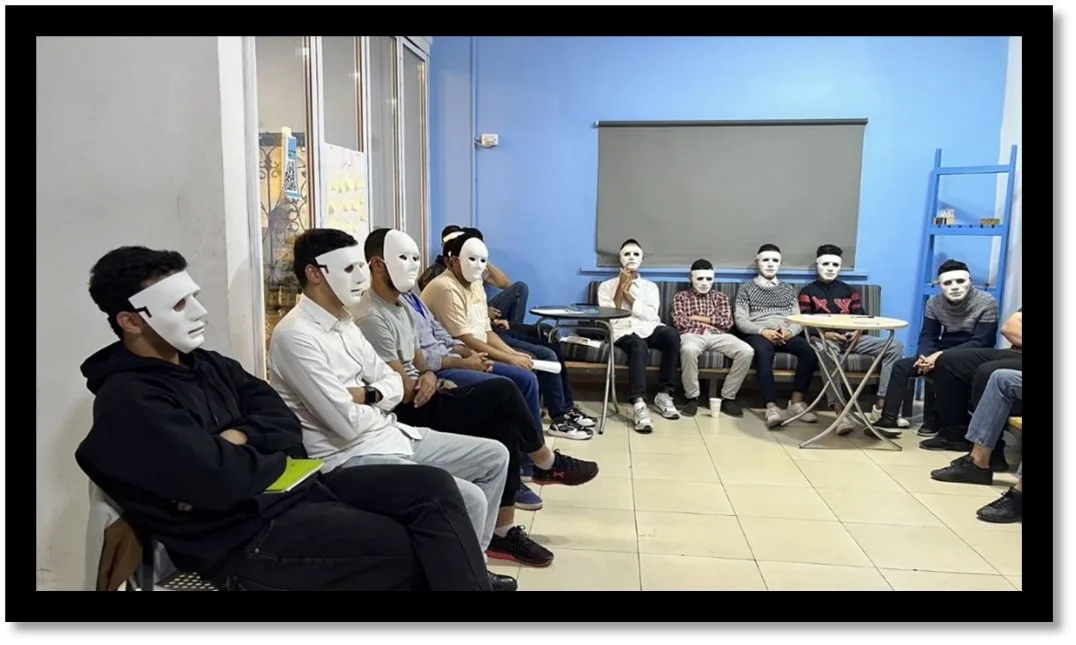
Recognition
These are just some of the many ways our young leaders have taken the Lead – and there is no going back. Change is happening in all nine of the program’s countries. The simple act of acknowledging and recognizing their achievements was a major boost for everyone’s morale and performance. The feeling is not only uplifting—but it is multiplied exponentially when others take notice. Recognition of the Community of Actions’ and rightsholders’ contributions to We Lead not only improves their SRHR work, but most importantly elevates their leadership in championing and advocating for young women’s SRHR in their respective contexts.
